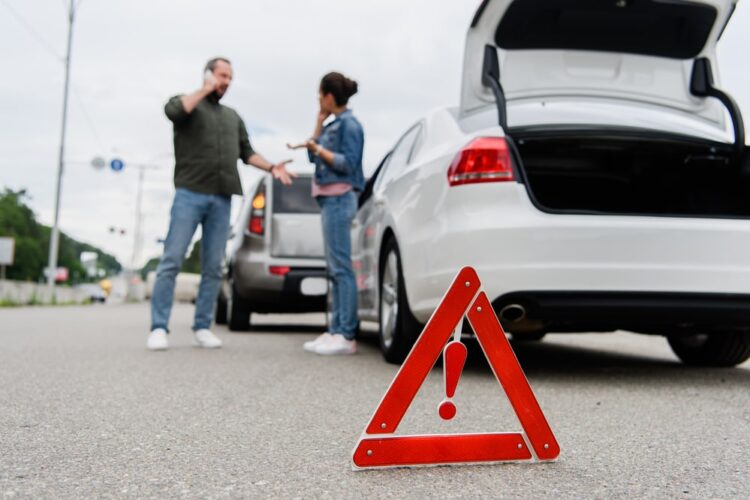August 11, 2023
Car accidents are an unfortunate reality of modern life, and they come in various forms, each with its unique legal implications. Understanding the legal nuances of these accidents is vital for anyone who gets behind the wheel. In this article, we will explore four common types of car accidents and delve into the legal aspects that accompany them, shedding light on what you should know in case you find yourself involved in such situations.
Rear-End Collisions
Rear-end collisions occur when one vehicle crashes into the back of another. These accidents often result from driver distraction, following too closely, or sudden stops. From a legal perspective, these accidents are typically straightforward in determining liability. In most cases, the driver who rear-ends another vehicle is held responsible for the accident due to failing to maintain a safe following distance. However, exceptions may apply, such as if the vehicle in front suddenly reverses without warning.
T-Bone Accidents
T-bone accidents, also known as side-impact collisions, happen when the front end of one vehicle collides with the side of another at a perpendicular angle. These accidents frequently occur at intersections, and the legal aspects can be intricate. The determination of liability often depends on factors like traffic signals, right-of-way rules, and whether either party was violating traffic laws. Witness testimonies and traffic camera footage can play a crucial role in establishing fault in T-bone accidents.
Head-On Collisions
Head-on collisions are among the most severe and deadly types of car accidents. They occur when two vehicles traveling in opposite directions collide frontally. The legal implications of head-on collisions often revolve around establishing which driver crossed the centerline or failed to stay in their lane. Evidence such as skid marks, witness accounts, and accident reconstruction may be employed to ascertain liability. In cases of intoxicated or reckless driving, criminal charges may also be involved.
Single-Vehicle Accidents
Single-vehicle accidents occur when only one vehicle is involved in a collision, such as hitting a stationary object or running off the road. While it may seem that determining fault is straightforward, these accidents can be legally complex. Factors like road conditions, mechanical failures, and external hazards can come into play. If the accident was caused by a defective vehicle component, a product liability claim against the manufacturer may be possible. Additionally, if road maintenance or design issues contributed to the accident, a government entity could be held liable.
Have You Been Injured?
If you or a loved one has been involved in a car accident, don’t hesitate to reach out to a qualified Fort Pierce, FL car accident lawyer who can provide you with the legal guidance and representation you need. Your attorney will work diligently to protect your rights, establish liability, and seek the compensation you deserve. Remember, the aftermath of a car accident can be overwhelming, but having a skilled attorney by your side can make a significant difference in the outcome of your case. Call Tuttle Larsen, P.A. to schedule a free consultation.

